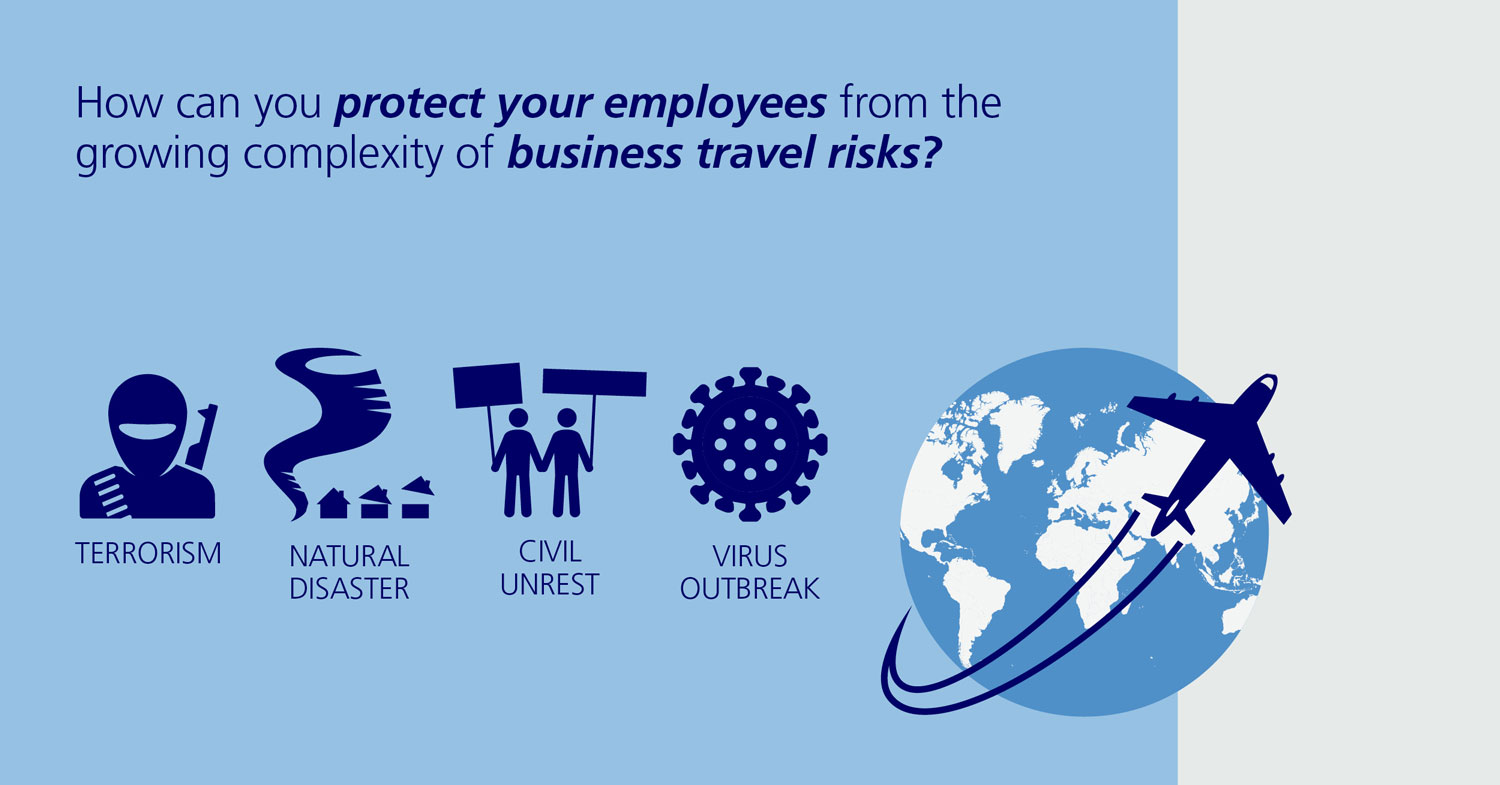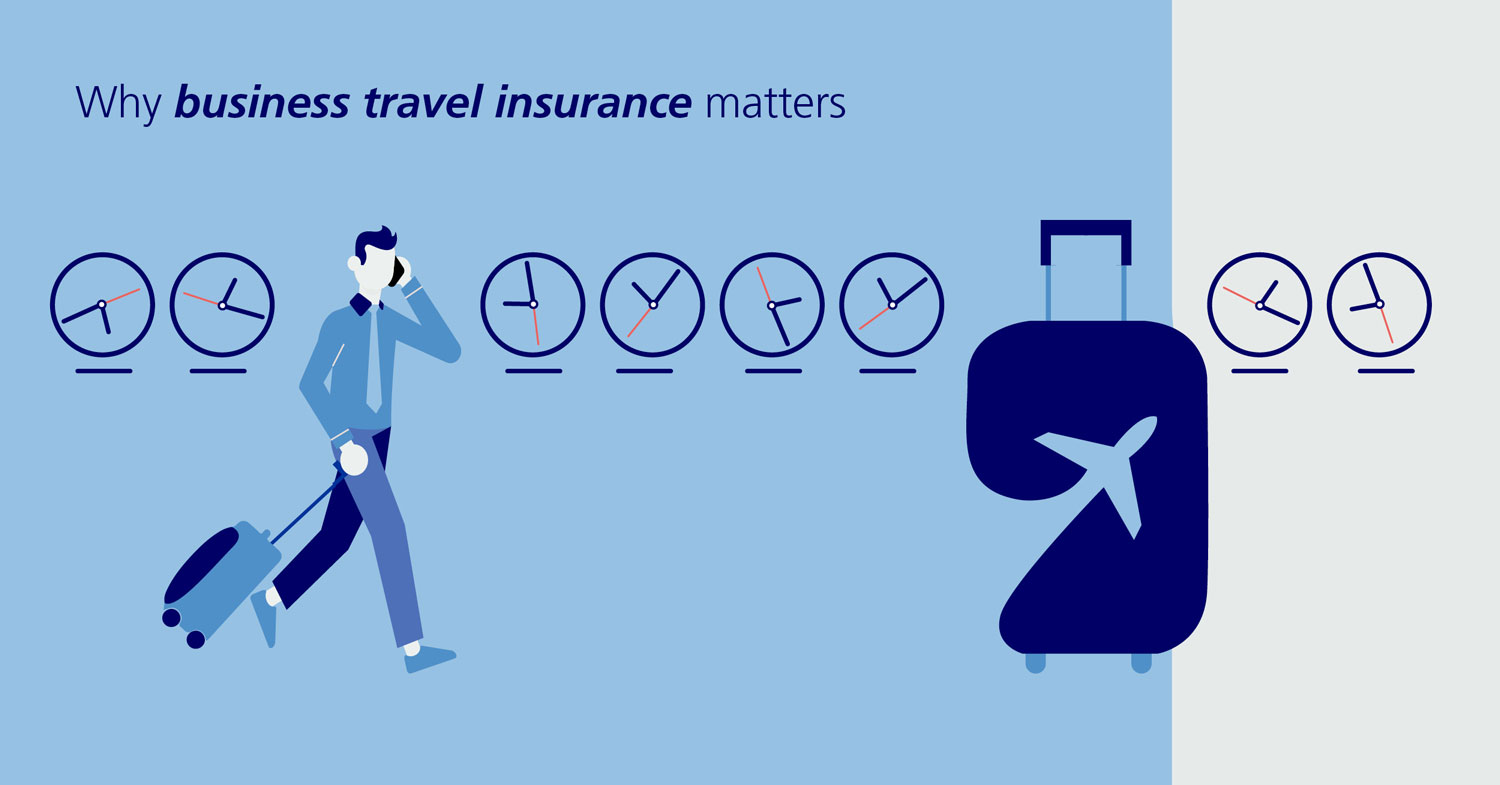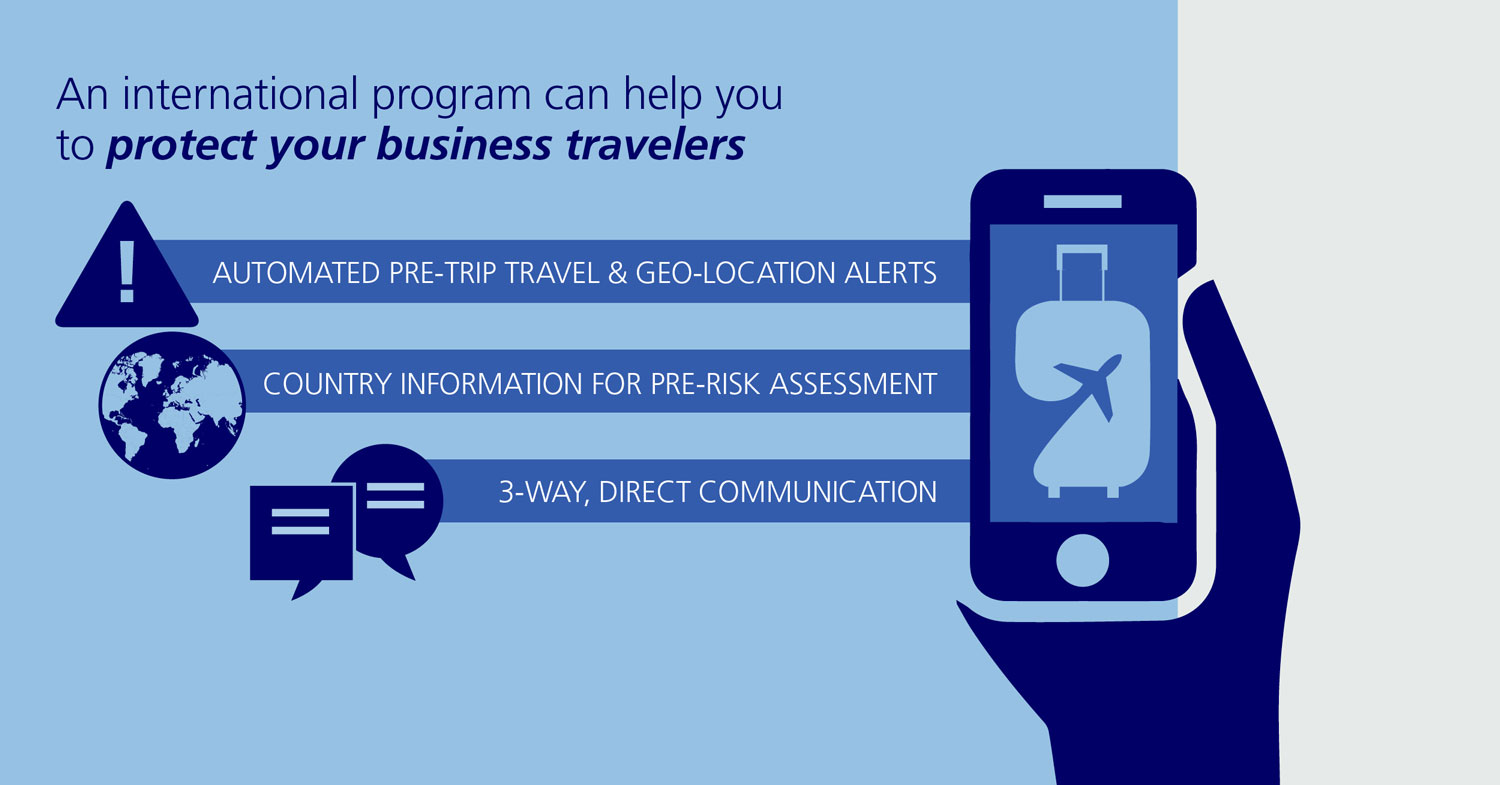Why business travel insurance matters
COVID-19ArticleMarch 9, 20205 min read
By Drazen Jaksic, global head of accident and health, commercial insurance, Zurich Insurance Group on March 9, 2020
The unfolding coronavirus (Covid-19) crisis has focused attention on the speed with which such outbreaks can spread globally. It has also shown just how complex business travel risks have become. Despite foreign governments outlining plans for the repatriation of their citizens, for the individual overseas traveller caught up in the crisis it would have been difficult to source information and support on the ground, especially with a potential language barrier, or indeed to navigate the Chinese medical services. Within days of the outbreak, coronavirus became not just a medical situation, but with grounding of flights, border closures and immigration and movement restrictions it has also become a geopolitical one.
Business travel has changed in the last 15 years. In today’s world, travellers are not just faced with usual flight delays or occasional medical emergency. With greater geopolitical instability, we see more and more civil unrests and riots that are not just confined to developing countries, increasing natural disasters as a result of climate change (such as the recent Australian bushfires), and more events such as Covid-19 or SARS. Also, in the past, travellers were often very aware of the areas where civil unrest might be a problem. But now, you can have a situation where a safe tourist destination such as Hong Kong has suddenly become a place where a business traveller could easily get caught up in a demonstration.
Employers have a social responsibility and legal duty to protect their employees from risks and threats when travelling and working around the world. And the growing complexity of business travel risks has brought into sharp focus the value of the assistance services that are provided to help business travellers on the ground, as part of a business travel insurance programme.

Insurance and assistance
One of the main differences between business and leisure travel is the fact that the business traveller may not have a choice about going to a particular territory. Engineering companies, for example, often send their employees to a whole host of far-flung places that are not to be found in the tourist guidebook. As the requirements for protecting the travellers are becoming more and more complex, the cover provided by business travel insurance is focused on three main areas: medical emergencies, travel inconveniences, and safety and security.
One of the main aspects of a business travel programme are the assistance services that can provide immediate help whenever and wherever it is needed through an expert global or local provider. These assistance services range from pre-travel, country-specific health, security and cultural advice, to 24-hour multilingual assistance to provide support for medical emergencies or security issues.
Many business travel insurance providers offer apps that provide not only cultural, destination and safety tips, but also the possibility of providing real-time security information to the traveller on the ground. This requires the employee to allow tracking through their mobile phone to enable proactive monitoring, and ensures that travellers are sent real-time alerts about any potential dangers based on their actual location through geofence technology. This is invaluable for employers, allowing them to know instantly whether staff travelling to higher-risk countries are caught up in a terror incident or political violence, and to be able to provide immediate assistance or advice.

As an example, if an employee was in Hong Kong on a business trip, the travel app would allow the risk manager to know their exact location so if they were to go to an area where there is a demonstration or a riot, the employee can be messaged instantly with information about the potential dangers and the location of safe places.
The pre-travel advice offered is designed to be preventative and educational, such as providing advice about particular countries or regions through a range of assessments or online tools. For some regions, medical might be the greater risk, whereas in others, safety and security may be more of a concern.
In addition, some companies would greatly benefit from more tailor-made specific advice and risk assessment, depending on their nature of business or type of trip undertaken. Requirements for travellers visiting financial centers in the Far East will be entirely different from a trip to a mining facility in Africa, so it is a question of working with risk management or HR and identifying the travel risks for their employees.
Benefits for employers and employees
Employers have a duty of care to ensure the safety and health of their employees, but ultimately, employers want to do the right thing for their employees. The advantage of having a global programme is that they do not have to source separate services from various providers. They can be brought together in one programme, comprising pre-travel advice, safety and security advice, travel arrangement assistance, medical care and support and assistance on the ground, all with a comprehensive insurance programme behind it. A global programme brings all of these services together into one place – a one-stop shop.

For the employee travelling abroad on business where time is often of the essence, they simply want to know that if anything goes wrong, they can depend upon their employer to look after them.
For the increasing number of multinational companies, the aim is to structure a global programme that has standardised cover and services as far as possible, so that regardless of where the employee may be based, or travelling to or from, the same or similar service levels can be expected.
The coronavirus outbreak will not be the last crisis to affect business travellers and with increased geopolitical uncertainties, having a multinational business travel insurance programme with a full range of assistance services means the traveller can be reassured that help can be provided with one point of contact.
Previously published on Commercial Risks online.
